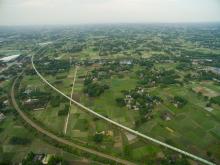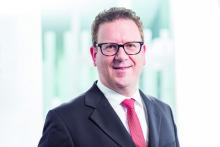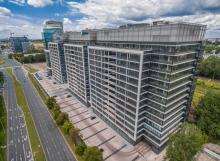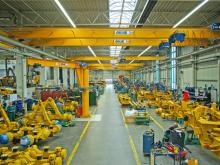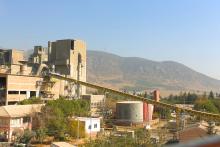Dr. Alexander Becker, chief executive of the Forged Technologies business unit at thyssenkrupp, said: “Our customers have made a conscious decision to place their orders with our Homburg site in order to secure the reliable supply of these specialised parts in Europe in times of international customs risks and rising logistics costs. This will allow the Homburg site to demonstrate its production expertise, product quality and delivery performance in the international marketplace.”
The plant has long been one of the most efficient production sites in thyssenkrupp’s global forging network. It is market leader for forged crankshafts, supplying automotive customers worldwide. The production of truck front axles will open up a new market and product segment for the company. These chassis components are powertrain-independent and will
continue to be needed even when e-mobility starts to make greater inroads into the transportation sector.
The centrepiece of the new highly automated and digitized forging line in Homburg will be a 16,000 tonne forging press measuring 10 meters in height and weighing 1,700 tonnes. The pressing force of 16,000 tonnes is equivalent to the weight of 30 of today’s biggest passenger aircraft.
Dr. Franz Eckl, chief operating officer (COO) of the Forged Technologies business unit, said: “The main press of the new forging line will be the world’s first eccentric press of this size, capacity and output to go into operation. It will produce around 360,000 forged components per year, and will not be restricted to one product. In addition to front axle systems this forging line will also be able to produce crankshafts and other forged parts as required.”
thyssenkrupp has been manufacturing forged components at the Homburg site since 1947. With a roughly 750-strong workforce it is one of the region’s biggest employers, and the new investment will create around 70 new jobs. Construction of the world’s most advanced forging line is scheduled to start in early 2020. The roughly 12,000m² facility will be built on the existing site, with completion and start of production planned for early 2021.
In 2017 thyssenkrupp consolidated its global forging activities in a new business unit within its components division. This allowed the company’s worldwide forging plants to be managed more efficiently while at the same time combining its value creation capabilities to develop new products for new and existing markets. The Forged Technologies business
unit is now one of the world’s largest forging operations with annual sales in excess of €1 billion. Its product portfolio includes forged and machined components and systems for the automotive, construction machinery and general engineering sectors. The company operates some 50 forging presses at 17 sites worldwide and has a broad
distribution network in over 70 countries. thyssenkrupp’s forging business currently employs around 7,500 people.

